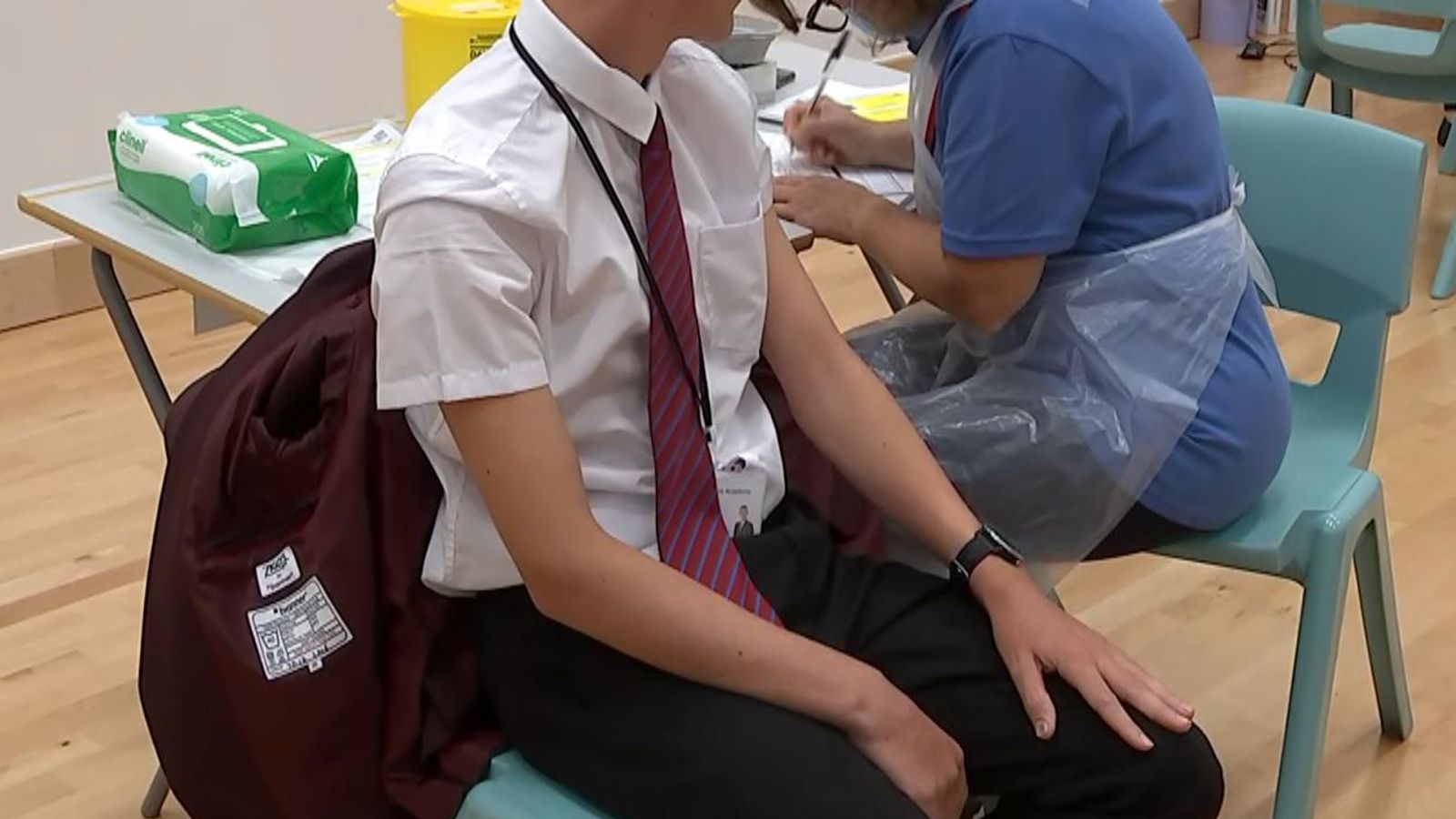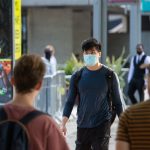Thousands of long COVID cases in children could be prevented if they are given two vaccine doses, a study suggests.
Children between 12 and 15 in the UK are now being offered a single dose of the Pfizer jab to cut their chance of catching the disease and passing it on.
But a new study looked at 12-17-year-olds getting both shots and concluded the benefits outweighed the risks “unless case rates are sustainably low”.
The research, in the Journal of the Royal Society of Medicine, examined rates of hospital admissions, intensive care support, and death among children in England with the virus.
It also looked at long COVID estimates, vaccine efficacy rates and the potential risk of heart inflammation.
As of 15 September, about 680 out of every 100,000 10-19-year-olds were contracting coronavirus every week.
The study said if this rose to 1000 per week then full vaccination of 12-17-year-olds could “avert 4,430 hospital admissions and 36 deaths over 16 weeks”.
COVID-19: Warning of redundancies as £70bn furlough scheme ends
Beijing Winter Olympics to admit spectators from mainland China only
A marathon recovery after COVID for charities – and Enda
However, if cases fell to 50 per 100,000, then an estimated 70 admissions and two deaths could be avoided over the same period.
“The benefit of vaccination in terms of hospitalisations in adolescents outweighs risks unless case rates are sustainably very low (below 30/100,000 teenagers/week),” said the study.
Please use Chrome browser for a more accessible video player
“Given the current high case rates in England, our findings support vaccination of adolescents against SARS-CoV2.”
Thousands of potential cases of long COVID could also be averted, the study suggested.
The authors said double vaccination would avert 56,000, 16,000, or 8,000 cases (based on long COVID rates among 12-17-year-olds of 14%, 4%, and 2%).
Follow the Daily podcast on Apple Podcasts, Google Podcasts, Spotify, Spreaker
A small study of schools in England has suggested more than one in 10 secondary pupils have suffered ongoing symptoms after contracting COVID.
The Office for National Statistics (ONS) survey estimated 12.3% pupils reported symptoms more than four weeks on from being infected.
Lead author Dr Deepti Gurdasani, of Queen Mary University of London, said: “This analysis shows that, on clinical risks alone, vaccination is warranted for 12 to 17-year-olds in England.
“While we wait to understand the long-term effects of COVID-19 on children, the precautionary principle advocates for protecting all children from exposure to this virus and vaccination is a crucial part of that protection.”






















